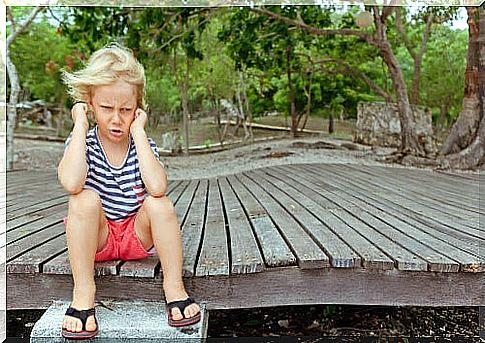Hyper Parenting: Parents Who Pay Too Much Attention To Their Children Can Harm Them

If you have children, you understand what they mean in your life. We see them as the closest loved ones to whom we want to feel good at all costs. It’s natural. The problem is that it sometimes turns into unhealthy behavior that modern psychologists refer to as hyper parenting.
Hyper-parenthood turns children into models of perfect and untouchable beings. People who are hardly human, but beings without flaws. What is it all about? We will explain it to you in the article.
What is hyper parenthood?
Hyper-parenting refers to a parenting model that relies on excessive parental supervision over children. But this way of supervising at every step is also associated with excessive expectations. Hyperparents expect their child to be good at practically everything they do.
In this way, children also become a symbol of a certain social status. For example, parents want their children to participate in all kinds of extracurricular activities in which they are meant to be great.
From piano to any sport to amazing grades, hyper-parent kids must follow a strict daily schedule every day to meet the standards expected by adults.
Parents control and unduly pay attention to their children’s lives in order to turn them into the embodiment of their expectations. Children and their activities are the absolute center of their world. At the same time, they show overprotection, solving everything for their children.
This is where we meet helicopter parents who circle their children and their lives. The second type are roller parents who smooth their children’s lives in search of the best. These are the two most common forms of overprotection that characterize hyper parenthood.

Consequences of hyper parenthood
This type of parenting has a huge impact on a child’s personal development. Most often, by constantly overestimating their children’s achievements, hyperparents evoke a sense of pride and a self-conceited vision of themselves.
But besides that, there are other, deeper complications. We discuss a few of them below. worth being aware of.
1. The suppression of development
Over the years, it has been recognized how important it is for children to deal with conflicts early in life. As a result, they slowly grow into people who are aware of the world around them.
However, when living under the supervision of hyper-parents, children do not face any conflict because their parents do not allow it. They solve problems for them and as a consequence their children become people deprived of autonomy. They are children who grow up without the ability to make any effort and without time to play.
2. Creating fears and uncertainties
When children raised in the model of hyper-parenthood finally have to face the world, they feel fear and insecurity because they have never experienced life as such. The result is a self-confident teenager.
This is counterproductive. One of the worries of hyper-parents is precisely that their children are not happy and have no friends. Hence the paradox of this parenting style.
3. Low frustration tolerance
Frustration is a condition defined as the inability to meet some need or desire. Meanwhile, hyper parenthood does not allow a child to be frustrated, scared or worried.
Hyperparents are those who don’t say “no” to any wish or request of their children. They will always please them, expressing their overprotection in this way.
Since they don’t get frustrated when they’re young, children grow up to be teens and adults who can’t tolerate being told “no” at work or school. They are overly irritated by the possibility of not getting what they want because they always got it as children.
People with low frustration tolerance react with anger, aggression, or withdrawal when they fail to achieve their goal. So experiencing frustration turns out to be an important experience for healthy emotional development.

4. Stressed families
The family life in this model is overburdened with the activities of the children. Parents want them everything they want and fill their schedule to the brim with courses or training to which they always have to take them. Consequently, the family lives under constant stress to fulfill this tight week plan.
How not to fall into hyper parenthood?
In order to avoid being hyperparents, the most important thing is to be aware of this mistake and to abandon this parenting style. The first step is to provide the autonomy your child needs depending on their age. You can start by arranging your clothes, toys, and letting them make their decisions.
The family must give up childhood by the clock. The child should be left alone for certain activities that he likes and is good for, so that he can use his abilities . So let your kids make mistakes and fail. Let it be wrong and it won’t be perfect.
Stop trying to solve all the problems for him. This damages his self-esteem in the long term. You don’t want him to feel incapable and inept when something goes wrong?
Your children must be able to be imperfect human children. For when they go out into the world, sooner or later they will collide with the reality that life is not as rosy as it is painted by hyperparents.









